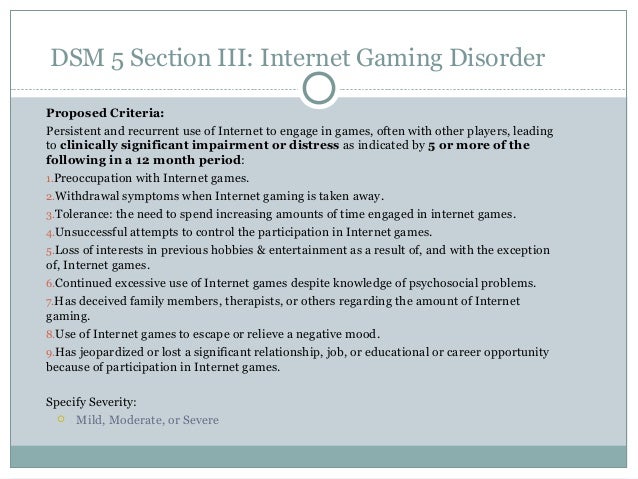World Health Organization to Classify Gaming Addiction as a Mental Disorder
Starting in 2018, Gaming Addiction will become officially recognized as a mental disorder by the World Health Organization (WHO). The International Classification of Diseases (ICD), which is maintained by the WHO, is a health care manual that provides a system of diagnostic codes for classifying diseases.
It has been 27 years since the last ICD manual (the ICD-10) was published. This widely used diagnostic manual was last updated in 1990, and the latest version – the ICD-11 – is set to be published in 2018. The updated manual will include “Gaming Disorder” under “Disorders Due to Addictive Behavior”. According to the current draft, Gaming Disorder will be described as:
Gaming disorder is characterized by a pattern of persistent or recurrent gaming behaviour (‘digital gaming’ or ‘video-gaming’), which may be online (i.e., over the internet) or offline, manifested by:
1) impaired control over gaming (e.g., onset, frequency, intensity, duration, termination, context);
2) increasing priority given to gaming to the extent that gaming takes precedence over other life interests and daily activities; and
3) continuation or escalation of gaming despite the occurrence of negative consequences.
The behaviour pattern is of sufficient severity to result in significant impairment in personal, family, social, educational, occupational or other important areas of functioning. The pattern of gaming behaviour may be continuous or episodic and recurrent. The gaming behaviour and other features are normally evident over a period of at least 12 months in order for a diagnosis to be assigned, although the required duration may be shortened if all diagnostic requirements are met and symptoms are severe.
Of course that doesn’t mean that just because you spend a lot of time playing video games that you necessarily have a mental disorder. A member of the WHO’s Department of Mental Health and Substance Abuse, Vladimir Poznyak, spoke about the importance of recognizing gaming disorder.
“Health professionals need to recognize that gaming disorder may have serious health consequences,” he said.
“Most people who play video games don’t have a disorder, just like most people who drink alcohol don’t have a disorder either. However, in certain circumstances overuse can lead to adverse effects.”
So how many gamers are “addicted” to video games in a unhealthy manner? A recent study by the University of Oxford looked at what the American Psychiatric Association called “Internet Gaming Disorder”. It was published in the American Journal of Psychiatry. It found that:
Among those who played games, more than 2 out of 3 did not report any symptoms of Internet gaming disorder, and findings showed that a very small proportion of the general population (between 0.3% and 1.0%) might qualify for a potential acute diagnosis of Internet gaming disorder. Comparison to gambling disorder revealed that Internet-based games may be significantly less addictive than gambling and similarly dysregulating as electronic games more generally.

Lead author Andrew K. Przybylski, Ph.D. discussed the findings saying:
“To our knowledge, these are the first findings from a large-scale project to produce robust evidence on the potential new problem of ‘internet gaming disorder,’” he said.
“Contrary to what was predicted, the study did not find a clear link between potential addiction and negative effects on health; however, more research grounded in open and robust scientific practices is needed to learn if games are truly as addictive as many fear.”
It seems that current findings show that gaming addiction is actually a rather rare disorder and that most gamers are not risking their health or livelihood by incessant gaming. I’m actually quite curious to see where this leads. Will gaming addiction be something we hear about regularly in the media or will it go mostly unnoticed since such a seemingly small percentage of the population will meet the diagnosis criteria?
What are your thoughts?
